-
 2025-12-17 21:49
2025-12-17 21:49
By Mona Hojat Ansari
Iran-Russia cooperation enters 'new phase' with 3-year roadmap
Araghchi and Lavrov hail expanding ties after meeting in Moscow
TEHRAN – Iran and Russia have further cemented their upward trend in cooperation, signing a new agreement that outlines practical implementation steps for some clauses of the strategic partnership treaty they signed earlier this year.
-
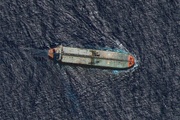
By staff writer
From sanctions to blockade: Trump’s naval coercion of Venezuela
TEHRAN – U.S. President Donald Trump’s decision to order a “total and complete” blockade of sanctioned Venezuelan oil tankers marks one of the most dangerous escalations in Washington–Caracas relations. While the Trump administration presents the move as a sanctions enforcement action, the reality is far more serious: the use of military force to control another country’s trade, outside international law and without global consent.
-
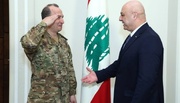
By Sondoss Al Asaad
Washington’s squeeze on Lebanese Army: Redefining doctrine, loyalty, and identity
BEIRUT—Over the past months, the Lebanese Army has found itself at the center of an escalating campaign of political, security, and ideological pressure led by Washington in close coordination with Israel.
-

By Wesam Bahrani
The imposed ‘peace’ on Gaza
Gaza won’t become part of an American project or a lifeline for failed politicians or dealmakers
TEHRAN – Nothing has been more dangerous for Gaza over the past two years than the bombs and missiles that have fallen on it.
-
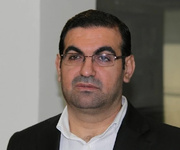
Zionist lobbyists may use Sydney terror act to polish Israel’s image: Lebanese analyst
Hikmat Amhaz says Mossad may have incited the Bondi terrorist incident
TEHRAN - In an exclusive interview with Tehran Times, Hikmat Amhaz, a Lebanese political analyst and member of the International Association of Political Analysts and Experts, examines the political and media ramifications of the deadly mass shooting at Sydney’s Bondi Beach.
-
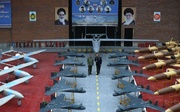
By Fatemeh Kavand
From the sky to the battlefield
An assessment of Iran’s drone capabilities in the age of emerging technologies
The rapid growth of Iran’s drone capabilities in recent years has turned this field into one of the central pillars of the country’s military power.
Politics
-
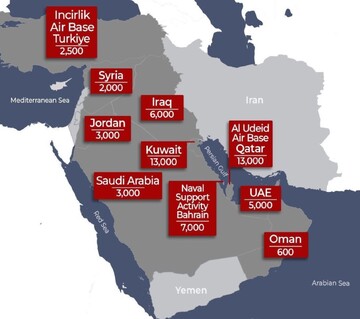
US bases on Iran’s target list in event of war
TEHRAN – Iranian Foreign Minister Abbas Araghchi says that should a war break out with the United States, and should the United States attack Iran’s nuclear facilities again, then Washington should expect Iran to strike American bases wherever they might be.
-
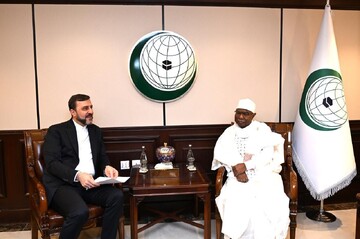
Iran calls for accountability for Gaza crimes in meeting with OIC chief
TEHRAN – Iran’s Deputy Foreign Minister for Legal and International Affairs, Kazem Gharibabadi, met with the Secretary General of the Organization of Islamic Cooperation (OIC), Hussein Ibrahim Taha, in Riyadh, Saudi Arabia, on Tuesday.
-
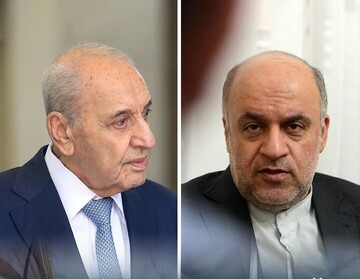
Iran once again emphasizes respect for Lebanon’s independence, territorial integrity
TEHRAN – Lebanese Parliament Speaker Nabih Berri has, in a meeting with Iranian Ambassador to Beirut Mojtaba Amani, discussed with him the latest political developments in Lebanon and in the region, bilateral ties and repeated violations by the Israeli regime.
Sports
-

Tractor vs Persepolis: A high-stakes Hazfi Cup showdown
TEHRAN - This Thursday, Tractor and Persepolis football teams will face off in the Round of 32 of Iran’s Hazfi Cup at the Yadegar-e Emam Stadium in Tabriz, kick-off scheduled for 16:15 local time.
-

Dembele and Bonmati win top prizes at the Best
TEHRAN - France attacker Ousmane Dembele won the 2025 FIFA Best Men's Player Award, while Barcelona midfielder Aitana Bonmati won the Best Women's Player Award for third straight year, FIFA announced Tuesday night.
-

Persepolis to part ways with Serge Aurier
TEHRAN – Persepolis football club are set to part ways with Ivorian defender Serge Aurier, bringing an early end to his short and disappointing spell in Iranian football.
Culture
-

Cinema Vérité wraps up with celebrations, awards
TEHRAN- The 19th edition of the International Documentary Film Festival of Iran, known as Cinéma Vérité, came to an end in Tehran on Tuesday, announcing the winners.
-

Iranian documentary “Cutting Through Rocks” shortlisted for 98th Academy Awards
TEHRAN – The Iranian documentary “Cutting Through Rocks” directed by Sara Khaki and Mohammadreza Eyni is among the 15 films shortlisted in the Documentary Feature Film category of the 98th Academy Awards.
-
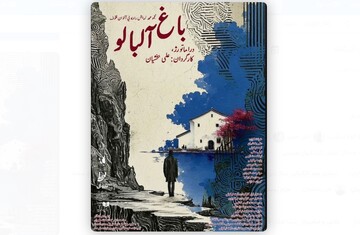
Iranian director to stage reading of Anton Chekhov’s “The Cherry Orchard”
TEHRAN- Iranian director Ali Bakhshian plans to stage a reading performance of the renowned Russian author Anton Chekhov’s final play “The Cherry Orchard” at Tehran Theater Hall on Friday.
Economy
-
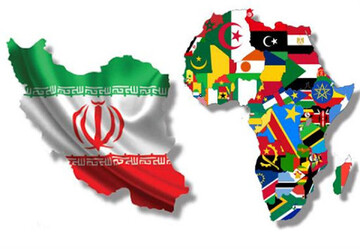
Iran to back investments in Africa, boost exports with multibillion-dollar guarantees
TEHRAN – Iran will support investments by Iranian firms in Africa and efforts to expand exports to the continent, with export credit guarantees and development financing expected to underpin trade growth, the head of the Iran–Africa Joint Chamber of Commerce stated.
-
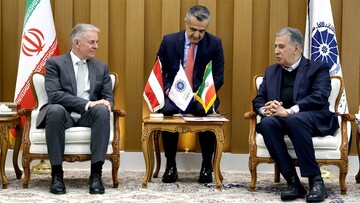
ICCIMA urges Austria to ease business visas, seeks cooperation in renewables
TEHRAN – The head of the Iran Chamber of Commerce, Industries, Mines and Agriculture (ICCIMA) has urged Austria to facilitate the issuance of business visas for Iranian traders, saying easier travel would help revive bilateral economic ties weakened by sanctions.
-
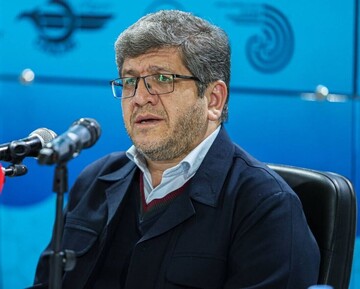
Govt. injects $300m into rail sector as private investment brings new locomotives, wagons
TEHRAN – Iranian government has allocated 150 trillion rials ($300 million) to the private sector to strengthen its rail fleet, paving the way for new locomotives and passenger wagons to enter service as part of the country’s Seventh National Development Plan, the head of the national railway company said.
Society
-
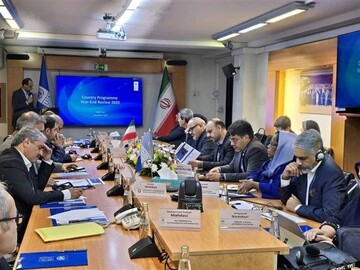
DOE, UNDP hold meeting on wetlands preservation
TEHRAN – Ahmadreza Lahijanzadeh, the deputy head of the Department of Environment (DOE) for Marine and Wetlands affairs, and Ayshanie Medagangoda-Labé, the resident representative ad interim for United Nations Development Program (UNDP) in Iran, held talks in Tehran on Wednesday, with a focus on the preservation of the country’s wetlands, particularly Hour al-Azim and Hamoun wetlands through provisions of water rights from Afghanistan and Iraq, respectively.
-
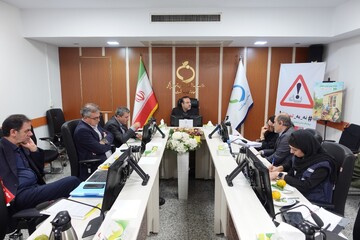
WHO oversees national preparedness in addressing communicable diseases
TEHRAN – Director of the Department of Communicable Diseases at the World Health Organization (WHO) Regional Office for the Eastern Mediterranean, Benedetta Allegranzi, has paid a visit to Iran, conducting a technical mission to strengthen communicable disease control, particularly in Tehran, Tabriz, in the northwest of the country, and Bandar Abbas in the south.
-
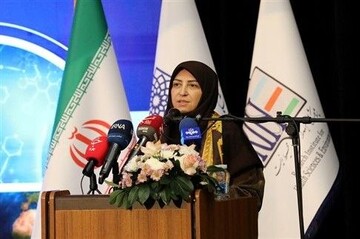
'Climate adaptation best strategy to reduce climate vulnerabilities'
TEHRAN – Boosting resilience and adaptation is the most effective strategy to mitigate the adverse impacts of climate change, the head of the Department of Environment (DOE), Shina Ansari, has said.
Tourism
-
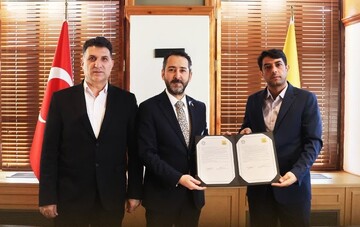
Iran’s Khoy and Turkey’s Konya sign sister-city agreement
TEHRAN - The Iranian city of Khoy and Turkey’s Konya have signed a sister-city agreement, committing to expand cooperation in spiritual tourism, cultural exchanges, urban management and sustainable infrastructure development, officials said.
-
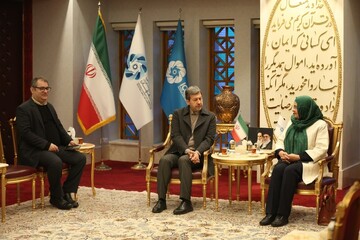
Zoroastrian lawmaker highlights restoration of historic fire temples
TEHRAN — An Iranian lawmaker representing the Zoroastrian community has called for continued restoration and protection of historic fire temples in the central province of Isfahan.
-
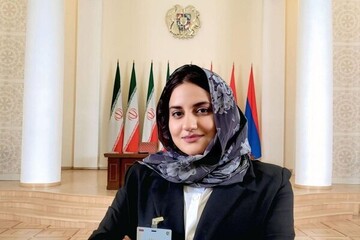
Iranology goes beyond academia, Armenian researcher says
TEHRAN—Iranology is a quiet diplomacy between Iran and Armenia. Mariam Zazyan, an Armenian Iranologist, believes that being an Iranologist has a responsibility beyond academic study and can play an effective role in strengthening the cultural and friendly relations between the nations.
International
-

From sanctions to blockade: Trump’s naval coercion of Venezuela
TEHRAN – U.S. President Donald Trump’s decision to order a “total and complete” blockade of sanctioned Venezuelan oil tankers marks one of the most dangerous escalations in Washington–Caracas relations. While the Trump administration presents the move as a sanctions enforcement action, the reality is far more serious: the use of military force to control another country’s trade, outside international law and without global consent.
-

Washington’s squeeze on Lebanese Army: Redefining doctrine, loyalty, and identity
BEIRUT—Over the past months, the Lebanese Army has found itself at the center of an escalating campaign of political, security, and ideological pressure led by Washington in close coordination with Israel.
-

The imposed ‘peace’ on Gaza
TEHRAN – Nothing has been more dangerous for Gaza over the past two years than the bombs and missiles that have fallen on it.
Video Comment
-

Ayatollah Khamenei’s vision of freedom and humanity discussed in intl. conference
-

Iran hosts SCO joint anti-terror drills
-

Holy Mary Metro Station marks interfaith unity in Tehran
-

Academics analyze social dimensions of Resistance in Tehran conference
-
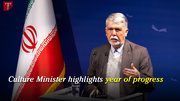
Culture minister highlights year of progress in arts, global image enhancement
Most Viewed
-
Silencing Shirin Saeidi, Belying Claims
-
US bases on Iran’s target list in event of war
-
Iran-Russia cooperation enters 'new phase' with 3-year roadmap
-
Turkish discontent with Lebanon over the Cyprus maritime agreement
-
High-level Iran-Russia talks set North–South Corridor on path to operation
-
Behind the Israeli assassination of Raed Saad
-
Araghchi highlights strategic partnership with Russia in Moscow meeting
-
Three police officers killed in terrorist attack at checkpoint in southeast Iran
-
Iran denounces UAE’s use of diplomatic engagements to rehash ‘groundless’ claims to trio islands
-
Iran’s tea export increases 48%
-
Zionist lobbyists may use Sydney terror act to polish Israel’s image: Lebanese analyst
-
Europe’s restoration of Iran sanctions ‘disgrace for diplomacy’: Russian FM
-
Govt. injects $300m into rail sector as private investment brings new locomotives, wagons
-
Steel chain exports rise 41% in 8 months on year
-
Beyond bombs: Israel’s expansionist narrative in Lebanon







